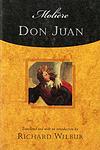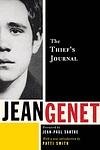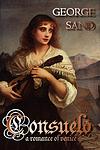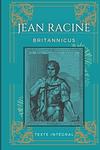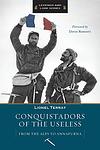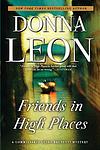The Greatest French "Italy" Books of All Time
Click to learn how this list is calculated.
This list represents a comprehensive and trusted collection of the greatest books. Developed through a specialized algorithm, it brings together 300 'best of' book lists to form a definitive guide to the world's most acclaimed books. For those interested in how these books are chosen, additional details can be found on the rankings page.
Genres
The "Italy" category of books encompasses literature that is set in Italy, written by Italian authors, or explores the culture, history, and lifestyle of Italy. This category includes a wide range of genres, including fiction, non-fiction, memoirs, travelogues, and cookbooks. Books in this category often showcase the beauty and charm of Italy, its rich history and traditions, and the unique experiences of its people. Whether you're looking for a romantic novel set in Tuscany or a guidebook to the best gelato shops in Rome, the "Italy" category has something for everyone.
Countries
Date Range
Reading Statistics
Click the button below to see how many of these books you've read!
Download
If you're interested in downloading this list as a CSV file for use in a spreadsheet application, you can easily do so by clicking the button below. Please note that to ensure a manageable file size and faster download, the CSV will include details for only the first 500 books.
Download-
1. Candide by Voltaire
"Candide" is a satirical novel that follows the adventures of a young man, Candide, who is living a sheltered life in an Edenic paradise and being indoctrinated with Leibnizian optimism by his mentor. When he is expelled from the paradise for kissing a baron's daughter, he embarks on a journey around the world, witnessing the horrors of war, natural disasters, and human cruelty. Throughout his journey, Candide maintains his optimistic philosophy, despite the constant hardships he faces, ultimately concluding that one must cultivate their own garden, a metaphor for taking control of one's own destiny.
-
2. The Charterhouse of Parma by Stendhal
The novel follows the life of a young Italian nobleman, who, driven by romantic ideals and a thirst for adventure, leaves his comfortable life to join Napoleon's army. After surviving many trials and tribulations, he returns home to a life of political intrigue, love affairs, and power struggles in the court of Parma. The narrative provides a vivid and satirical depiction of the political and social life in Italy during the 19th century.
-
3. Memoirs of Hadrian by Marguerite Yourcenar
"Memoirs of Hadrian" is a historical novel that presents a fictional autobiography of the Roman Emperor Hadrian, who reigned from 117 to 138 AD. Narrated in the first person, the novel explores Hadrian's ascension to the throne, his administration, his love for the young Antinous, and his philosophical reflections on life and death. The narrative is framed as a letter to his successor, Marcus Aurelius, offering insights into the complexities of power, the nature of leadership, and the human condition.
-
4. The Mediterranean And The Mediterranean World In The Age Of Philip Ii by Fernand Braudel
This seminal work offers a comprehensive analysis of the Mediterranean region during the 16th century, focusing on the complex social, political, and economic landscapes that defined the era of Philip II of Spain. The book transcends traditional historiography by emphasizing the geographical and ecological factors that shaped human activity, from the ebb and flow of commerce and the patterns of agrarian life to the rise and fall of empires. Through a meticulous study of the Mediterranean world, the narrative weaves together the intricate tapestry of cultures, religions, and power dynamics that characterized the period, providing a vivid portrayal of the enduring influence of the environment on the course of human history.
-
5. Don Juan by Molière
This comedic play explores the life of a libertine nobleman who is infamous for his seduction of women. The protagonist is a man who lives by his own rules, unburdened by morality or religion, and who takes pleasure in manipulating others for his own gain. His actions eventually lead to his downfall when he refuses to repent for his sins, resulting in a dramatic, supernatural punishment.
-
6. The Thief's Journal by Jean Genet
The book is a fictionalized account of the author's experiences in the criminal underworld of early 20th-century Europe. It is a narrative that delves into the life of a man who embraces his identity as a thief and a homosexual, exploring the intersections of crime, sexuality, and social defiance. The protagonist navigates through various relationships with fellow outcasts and criminals, while also confronting the moral codes of society. The work is known for its poetic and introspective prose, as well as its exploration of themes such as betrayal, freedom, and the search for beauty within the margins of society.
-
7. Lorenzaccio by Alfred de Musset
The play is a dramatic tale set in Renaissance Florence, revolving around the character of Lorenzo de Medici, a young, disillusioned aristocrat entangled in the corrupt political machinations of his time. Disgusted by the tyrannical rule of his cousin, Duke Alessandro, and the moral decay of society, Lorenzo hatches a complex plot to assassinate the Duke. His internal conflict and the influence of Machiavellian philosophy drive the narrative, exploring themes of power, betrayal, and the struggle between personal ideals and the harsh realities of the political world. The play ultimately unfolds as a dark, psychological drama that delves into the depths of human nature and the costs of radical action.
-
8. The Vatican Cellars by Andre Gide
The novel unfolds as a satirical adventure, delving into the complexities of faith, deception, and the human quest for meaning. Set against the backdrop of early 20th-century Europe, it follows the journey of Lafcadio, a young man whose paths cross with an eclectic mix of characters, including anarchists, aristocrats, and religious figures, each embroiled in their own pursuits of ideology, power, and salvation. Central to the plot is a meticulously planned hoax involving the Pope, which spirals into a series of events that challenge the characters' beliefs and intentions. Through its intricate narrative and sharp critique of societal norms, the book explores themes of morality, authenticity, and the absurdity of human endeavors.
-
9. Consuelo by George Sand
"Consuelo" is a historical novel set in the 18th century that follows the life of a young and talented Venetian singer of the same name. Born into poverty, Consuelo rises through the ranks of the opera world, thanks to her extraordinary voice and the mentorship of a mysterious maestro. Her journey is not just one of artistic growth but also of personal discovery and moral development, as she navigates the complexities of love, society, and political unrest. Throughout the novel, she encounters a variety of characters, from nobility to revolutionaries, which shape her understanding of justice, equality, and the role of art in society. The book is a rich tapestry of adventure, romance, and philosophical musings on the nature of art and the artist's place in the world.
-
10. Leo Africanus by Amin Maalouf
This historical novel follows the life of a real-life Andalusian-born traveler of the 16th century, who is captured by Christian pirates and presented as a gift to the Pope. Renamed after the pontiff, he becomes a respected scholar and diplomat, navigating the complex cultural and religious divides of the Mediterranean world. Throughout his journeys, which take him from his birthplace in Granada to Fez, Timbuktu, Constantinople, and Rome, he witnesses the tumultuous events of his time, including the fall of Granada and the rise of the Ottoman Empire. His story is one of identity, belonging, and the universal quest for knowledge and understanding amidst a backdrop of conflict and change.
-
11. Britannicus by Jean Racine
The play is a tragic depiction of the struggle for power in ancient Rome, focusing on the young emperor Nero's rise to tyranny. It portrays Nero's manipulation and betrayal as he seeks to consolidate his rule, eliminating any threats to his authority. The drama unfolds around his toxic relationship with his mother Agrippina, his ruthless disposal of his stepbrother Britannicus, who is the rightful heir to the throne, and his obsessive love for Britannicus's betrothed, Junia. The narrative is a classic example of political intrigue, moral decay, and the destructive nature of absolute power, highlighting the psychological complexity and emotional turmoil of its characters as they navigate a dangerous and duplicitous court.
-
12. Mark Antony by Robert Garnier
The book in question is a classic French Renaissance tragedy that delves into the complex and tumultuous life of a renowned Roman general and politician. Set against the backdrop of the Roman Empire's decline, the narrative explores themes of love, power, betrayal, and the tragic consequences of human flaws. The protagonist's story is one of a passionate and ill-fated love affair with a foreign queen, political strife, and the ultimate downfall of a once-great leader. Through poetic language and dramatic scenes, the play examines the intricate interplay between personal desires and the harsh realities of political life, leading to a catastrophic end that reflects on the nature of fate and the inescapable flaws of humanity.
-
13. Cinna by Pierre Corneille
"Cinna" is a classic French tragedy set in ancient Rome, focusing on themes of clemency and tyranny. The play revolves around the titular character, a nobleman involved in a conspiracy to assassinate Emperor Augustus. As the plot unfolds, the conspirators grapple with their moral dilemmas and the consequences of their actions. The emperor, upon discovering the plot, faces his own internal struggle between his desire for justice and the virtue of forgiveness. The narrative explores the complexities of power, loyalty, and the human capacity for mercy, culminating in a surprising act of leniency that challenges the traditional expectations of retribution in tragedy.
-
14. The Scortas' Sun by Laurent Gaudé
"The Scortas' Sun" is a sweeping family saga set in the heart of the Italian South, where the Scorta family, marked by a history of poverty and criminality, struggles to achieve a sense of honor and prosperity. The narrative spans several generations, exploring themes of legacy, identity, and the relentless pursuit of a better life. Despite the harshness of their environment and the stigma attached to their name, the Scortas are bound by a fierce familial loyalty and a determination to ensure that their descendants enjoy the dignity and opportunities that they themselves were denied. The novel delves into the intimate moments and grand dreams that shape the family's destiny, painting a vivid portrait of a clan's unyielding resilience in the face of adversity.
-
15. Starlight and Storm by Gaston Rébuffat
This book is a vivid account of the exhilaration and challenges of mountaineering, written by a renowned mountaineer. It provides readers with an insightful look into the world of high altitude climbing, detailing the author's experiences and adventures on some of the most dangerous and iconic peaks in the Alps. The author also shares his philosophy on mountaineering, emphasizing the importance of team spirit, careful preparation, and respect for the mountains.
-
16. Conquistadors of the Useless by Lionel Terray
"Conquistadors of the Useless" is a riveting memoir of a renowned mountain climber, sharing his thrilling experiences in the world of mountaineering. The book takes the reader on a journey through some of the most challenging and dangerous climbs, including the first ascents of Annapurna and Makalu. The author also provides a profound insight into the psyche of climbers, the risks they take, and the reasons behind their seemingly irrational passion for climbing. The book is not just about climbing but also about the human spirit and its relentless pursuit of achievement.
-
17. Friends In High Places by Donna Leon
"Friends in High Places" is a mystery novel that follows the protagonist, a Venetian detective, as he investigates a case involving the suspicious death of a government official. The detective's inquiry leads him into a tangled web of corruption, real estate fraud, and high society connections in Venice. As he delves deeper, he must navigate the perilous waters of political influence and ethical dilemmas, relying on a few trustworthy allies in a city where appearances often hide darker truths. The novel combines a compelling detective story with a rich portrayal of Venetian life and politics.
Reading Statistics
Click the button below to see how many of these books you've read!
Download
If you're interested in downloading this list as a CSV file for use in a spreadsheet application, you can easily do so by clicking the button below. Please note that to ensure a manageable file size and faster download, the CSV will include details for only the first 500 books.
Download



